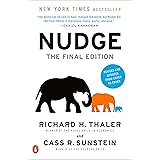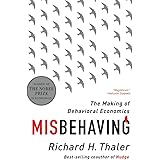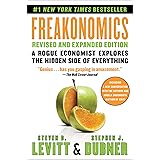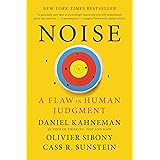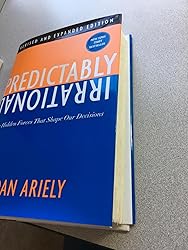
Enjoy fast, free delivery, exclusive deals, and award-winning movies & TV shows with Prime
Try Prime
and start saving today with fast, free delivery
Amazon Prime includes:
Fast, FREE Delivery is available to Prime members. To join, select "Try Amazon Prime and start saving today with Fast, FREE Delivery" below the Add to Cart button.
Amazon Prime members enjoy:- Cardmembers earn 5% Back at Amazon.com with a Prime Credit Card.
- Unlimited Free Two-Day Delivery
- Streaming of thousands of movies and TV shows with limited ads on Prime Video.
- A Kindle book to borrow for free each month - with no due dates
- Listen to over 2 million songs and hundreds of playlists
- Unlimited photo storage with anywhere access
Important: Your credit card will NOT be charged when you start your free trial or if you cancel during the trial period. If you're happy with Amazon Prime, do nothing. At the end of the free trial, your membership will automatically upgrade to a monthly membership.
Buy new:
-53% $9.33$9.33
Ships from: Amazon.com Sold by: Amazon.com
Save with Used - Acceptable
$7.55$7.55
Ships from: Amazon Sold by: Goodwill Good Skills

Download the free Kindle app and start reading Kindle books instantly on your smartphone, tablet, or computer - no Kindle device required.
Read instantly on your browser with Kindle for Web.
Using your mobile phone camera - scan the code below and download the Kindle app.

OK
Image Unavailable
Color:
-

-
-
- To view this video download Flash Player
-

-
 6 VIDEOS
6 VIDEOS -

 Audible sample Sample
Audible sample Sample 


Predictably Irrational, Revised and Expanded Edition: The Hidden Forces That Shape Our Decisions Paperback – Illustrated, April 27, 2010
Purchase options and add-ons
Why do our headaches persist after we take a one-cent aspirin but disappear when we take a fifty-cent aspirin? Why do we splurge on a lavish meal but cut coupons to save twenty-five cents on a can of soup?
When it comes to making decisions in our lives, we think we're making smart, rational choices. But are we?
In this newly revised and expanded edition of the groundbreaking New York Times bestseller, Dan Ariely refutes the common assumption that we behave in fundamentally rational ways. From drinking coffee to losing weight, from buying a car to choosing a romantic partner, we consistently overpay, underestimate, and procrastinate. Yet these misguided behaviors are neither random nor senseless. They're systematic and predictable—making us predictably irrational.
- Print length384 pages
- LanguageEnglish
- Publication dateApril 27, 2010
- Reading age18 years and up
- Dimensions5.31 x 0.86 x 8 inches
- ISBN-109780061353246
- ISBN-13978-0061353246
The Amazon Book Review
Book recommendations, author interviews, editors' picks, and more. Read it now.
Frequently bought together

More items to explore
 That's a lesson we can all learn: the more we have, the more we want. And the only cure is to break the cycle of relativity.Highlighted by 5,530 Kindle readers
That's a lesson we can all learn: the more we have, the more we want. And the only cure is to break the cycle of relativity.Highlighted by 5,530 Kindle readers With everything you do, in fact, you should train yourself to question your repeated behaviors.Highlighted by 4,164 Kindle readers
With everything you do, in fact, you should train yourself to question your repeated behaviors.Highlighted by 4,164 Kindle readers The second quirk is that we focus on what we may lose, rather than what we may gain.Highlighted by 3,776 Kindle readers
The second quirk is that we focus on what we may lose, rather than what we may gain.Highlighted by 3,776 Kindle readers
From the Publisher





|

|

|

|
|
|---|---|---|---|---|
| IRRATIONALLY YOURS | HONEST TRUTH ABOUT DISHONESTY | DOLLARS AND SENSE | UPSIDE OF IRRATIONALITY | |
| Customer Reviews |
4.1 out of 5 stars
291
|
4.4 out of 5 stars
1,495
|
4.4 out of 5 stars
783
|
4.4 out of 5 stars
989
|
| Price | $14.41$14.41 | $15.00$15.00 | $10.99$10.99 | $11.39$11.39 |
Editorial Reviews
Review
“This is a wonderful, eye-opening book. Deep, readable, and providing refreshing evidence that there are domains and situations in which material incentives work in unexpected ways. We humans are humans, with qualities that can be destroyed by the introduction of economic gains. A must read!” — Nassim Nicholas Taleb, New York Times bestselling author of The Black Swan: The Impact of the Highly Improbable
“An entertaining look at human foibles.” — New York Times
“Sly and lucid. . . . Predictably Irrational is a far more revolutionary book than its unthreatening manner lets on.” — New York Times Book Review
“Surprisingly entertaining. . . . Easy to read. . . . Ariely’s book makes economics and the strange happenings of the human mind fun.” — USA Today
“A fascinating romp through the science of decision-making that unmasks the ways that emotions, social norms, expectations, and context lead us astray.” — Time magazine
“In creative ways, author Dan Ariely puts rationality to the test. . . . New experiments and optimistic ideas tumble out of him, like water from a fountain.” — Boston Globe
“An entertaining tour of the many ways people act against their best interests, drawing on Ariely’s own ingeniously designed experiments. . . . Personal and accessible.” — BusinessWeek
“Ariely’s book addresses some weighty issues . . . with an unexpected dash of humor.” — Entertainment Weekly
“A spry treatise on how the world works and how we spend our money based on other people’s rules. . . . Ariely has a brilliant solution to a problem that is very real . . . Make a point of seeing this book. That way you’ll know you want it, and you will.” — Kirkus Reviews (starred)
“Inventive. . . . An accessible account. . . . Ariely is a more than capable storyteller . . . If only more researchers could write like this, the world would be a better place.” — Financial Times
“Ariely’s intelligent, exuberant style and thought-provoking arguments make for a fascinating, eye-opening read.” — Publishers Weekly
“A taxonomy of financial folly.” — The New Yorker
“Smart.” — Slate
“A marvelous book that is both thought provoking and highly entertaining, ranging from the power of placebos to the pleasures of Pepsi. Ariely unmasks the subtle but powerful tricks that our minds play on us, and shows us how we can prevent being fooled.” — Jerome Groopman, New York Times bestselling author of How Doctors Think
“Dan Ariely is a genius at understanding human behavior: no economist does a better job of uncovering and explaining the hidden reasons for the weird ways we act, in the marketplace and out. PREDICTABLY IRRATIONAL will reshape the way you see the world, and yourself, for good.” — James Surowiecki, author of The Wisdom of Crowds
“PREDICTABLY IRRATIONAL is a charmer-filled with clever experiments, engaging ideas, and delightful anecdotes. Dan Ariely is a wise and amusing guide to the foibles, errors, and bloopers of everyday decision-making.” — Daniel Gilbert, Professor of Psychology, Harvard University and author of Stumbling on Happiness
“The most difficult part of investing is managing your emotions. Dan explains why that is so challenging for all of us, and how recognizing your built-in biases can help you avoid common mistakes.” — Charles Schwab, Chairman and CEO, The Charles Schwab Corporation
“PREDICTABLY IRRATIONAL is wildly original. It shows why—much more often than we usually care to admit—humans make foolish, and sometimes disastrous, mistakes. Ariely not only gives us a great read; he also makes us much wiser.” — George Akerlof, Nobel Laureate in Economics, 2001 Koshland Professor of Economics, University of California at Berkeley
“Dan Ariely’s ingenious experiments explore deeply how our economic behavior is influenced by irrational forces and social norms. In a charmingly informal style that makes it accessible to a wide audience, PREDICTABLY IRRATIONAL provides a standing criticism to the explanatory power of rational egotistic choice.” — Kenneth Arrow, Nobel Prize in Economics 1972, Professor of Economics Stanford University
“A delightfully brilliant guide to our irrationality—and how to overcome it—in the marketplace and everyplace.” — Geoffrey Moore, author of Crossing the Chasm and Dealing with Darwin
“After reading this book, you will understand the decisions you make in an entirely new way.” — Nicholas Negroponte, founder of MIT's Media Lab and founder and chairman of the One Laptop per Child non-profit association
“PREDICTABLY IRRATIONAL is a scientific but imminently readable and decidedly insightful look into why we do what we do every day...and why, even though we ‘know better,’ we may never change.” — Wenda Harris Millard, President, Media, Martha Stewart Living Omnimedia
“Predictably Irrational is an important book. Full of valuable and entertaining insights that will make an impact on your business, professional, and personal life.” — Jack M Greenberg, Chairman, Western Union Company, Retired Chairman and CEO, McDonald's Corporation
“Predictably Irrational is clever, playful,humorous, hard hitting, insightful, and consistently fun and exciting to read.” — Paul Slovic, Founder and President, Decision Research
“Freakonomics held that people respond to incentives, perhaps in undesirable ways, but always rationally. Dan Ariely shows you how people are deeply irrational, and predictably so.” — Chip Heath, Co-Author, Made to Stick, Professor, Stanford Graduate School of Business
Product details
- ASIN : 0061353248
- Publisher : Harper Perennial; Expanded edition (April 27, 2010)
- Language : English
- Paperback : 384 pages
- ISBN-10 : 9780061353246
- ISBN-13 : 978-0061353246
- Reading age : 18 years and up
- Item Weight : 9.2 ounces
- Dimensions : 5.31 x 0.86 x 8 inches
- Best Sellers Rank: #5,579 in Books (See Top 100 in Books)
- Customer Reviews:
Videos
Videos for this product

0:55
Click to play video

Predictably Irrational - Overview And My Thoughts
🟢Blake's Real Reviews

Videos for this product

0:45
Click to play video

Predictably Irrational! My Honest Review!
MCM Reviews

Videos for this product

0:28
Click to play video

Predictably Irrational: Is It Worth It?
Cast and Spear

Videos for this product

1:05
Click to play video

IS Predictably Irrational worth the read?
John Muscarello

About the author

Officially, I am the James B. Duke Professor of Psychology & Behavioral Economics at Duke University.
I founded the Center for Advanced Hindsight, wrote a few books, took part in a few media project and startups.
I co-created of the film documentary (Dis)Honesty: The Truth About Lies, and I wrote three-time New York Times bestsellers: Predictably Irrational, The Upside of irrationality, and The Honest Truth About Dishonesty. I also wrote a few books that did not make it to the New York Times bestsellers list: Irrationally Yours, Payoff, Amazing Decisions and Dollars and Sense.
My new book, MISBELIEF: WHAT MAKES RATIONAL PEOPLE BELIEVE IRRATIONAL THINGS began with my own experience being the target of conspiracy theories, but quickly became about a phenomenon that affects all of us. I will use the term misbelief to describe the phenomenon we’re exploring. Misbelief is a distorted lens through which people begin to view the world, reason about the world, and then describe the world to others.
I derive a lot of satisfaction from seeing my work take shape in the real life and I take part in a few companies / startups. Among them are: Lemonade, Shapa, Irrational Capital, BEWorks, Epilog, Timeful, and Irrational Labs.
I am also part of a team that is working on an NBC TV series that is loosely based on my life and will premiere on NBC in the fall of 2023. The show is called “The Irrational” and officially it is based on my first book, Predictably Irrational.
Customer reviews
Customer Reviews, including Product Star Ratings help customers to learn more about the product and decide whether it is the right product for them.
To calculate the overall star rating and percentage breakdown by star, we don’t use a simple average. Instead, our system considers things like how recent a review is and if the reviewer bought the item on Amazon. It also analyzed reviews to verify trustworthiness.
Learn more how customers reviews work on AmazonReviews with images
-
Top reviews
Top reviews from the United States
There was a problem filtering reviews right now. Please try again later.
Zero cost irrationality as described by PI is the concept that reviews the large bias humans show towards "free." I put free in quotations as I am using the term loosely in this context as often the decision chosen is not without cost, and in relative terms, it is often not the option that held the most value per unit of the exchanging intermediary item. In fact, just a few hours before writing this brief review, I purchased three Publix cloth shopping bags that I had no intention of purchasing beforehand, but because they were buy three get one free. I can say in earnest, without that free offer, I would have completely shrugged off the Publix bag, to purchase at another time. A potential solution to this problem, derived from a specific example he mentions within the chapter, is to mentally give the "free" item a price, even one as low as one penny. This, surprisingly, nullifies the zero cost irrationality for most individuals, allowing for proper cost-benefit analysis of the additional item or offer.
Procrastination, or the giving up of long-term goals for immediate gratification, this desire for immediate satisfaction permeates particularly strongly throughout American culture. The effect of this national procrastination can be seen by abhorrently low national saving rate, or more implicitly or healthcare system that is more reactive than proactive. Though I personally am not a pure procrastinator, in fact many would consider me an extrovert, I believe that there quite a bit I still put off that I do so exactly because I fail to properly evaluate the opportunity cost of the long term benefit of said action. For example, I did a quick back of an envelope calculation of me putting of my savings to next year, rather than not starting when I begun work two years ago. This three wait has cost me over half a million dollars (Assumptions: Roth IRA, with locked six percent APR, maturing in fifty years). I have begun taking Ariely's advice, and setting hard deadlines for many things, such as this particular book review which I gave myself exactly the day after completing the book to complete, no exceptions and no excuses.
The final personal irrationality I've found plaguing my decision making has been that of `keeping doors open,' or not being able to stand the idea of closing our alternative options. My irrational in my context, has to do with maybe not a plethora of options, as emphasized within the book, but rather when I am down to two options that have to deal with something within the social sphere. Case in point, I would fret over the decision of whether I should continue to chase after a girl or letting her go, or going to a party where I would probably feel uncomfortable or not, though these examples may seem simple to an someone else, I struggled with these decisions constantly. Often than not, I found myself unable to take the choice that errs on the side of negative (deciding to stay home, or leave the girl alone) as I felt doing so eliminates a multitude of options without producing any new ones of benefit. I am curious to whether how much confidence has to do with the exact experiment presented within the book. I speculate if participants were required to self select as confident, or perhaps anchored to think of confidence, if such decisions become easier. I wonder this, since many my such decision-making gridlocks underlie a lack of self confidence, perhaps those with more of it at the time of the test may change results. In sum, Ariely's solution, as I interpret it, the cure for procrastination is really premised by self-confidence, where one sets long term goals and bravely commits to them.
The book discussed around 14 irrationalities in total across 13 chapters, each holding a slight new scope of human cognizance to gain. The three above mentioned irrationalities after a deep introspective look, I felt held the most personal utility. I genuinely I have a new lens to the world. I genuinely believe that holds the potential to enrich the perspective of most readers as well, no matter their relative amount of academic background on the subject.
There are some very interesting anecdotes (for example, do you know why we think black pearls are valuable when originally no one wanted to buy them at any price?) and these are where most of the book's value lies.
The principal weakness comes from Ariely's conclusions based on the work he's carried out. He acknowledges that we humans are "irrational" compared to the straw man of the "rational optimizer" beloved of neoclassical economic theory, but while some of his examples are interesting he fails to see the entire picture. Thus whereas Keen shows that the neoclassical model is computationally impossible, Ariely merely shows that we have different decision-making processes in two distinct contexts: interpersonal and financial. This is valid, but Ariely then goes on to show that he hasn't really explored the interpersonal context with any degree of rigor.
A couple of examples will illustrate what I mean. In the first example Ariely talks about how companies strive to create a "social exchange" in the workplace because people generally work harder and more diligently in social exchange settings than in compensation-based settings. We can think of how we might keep on struggling to get a friend's piano up the stairs of a narrow apartment building long after we'd have given up if we were simply being paid $10 per hour by a stranger to perform the same task. So Ariely notes that companies try to exploit our social side in order to get more work out of us (he doesn't look at the ethics of this attempt, or even at its many infeasibilities). Then he suggests that in order to reinforce the social dynamic and avoid corrupting it with the financial dynamic (because it's not possible to combine the two) companies should not give bonuses but instead should send employees off on a paid-for vacation. The problem, of course, is that most employees don't want to be placed in a parent-child relationship. Most employees think of themselves as independent adults. Saying "here's a vacation we've arranged for you" violates an employee's independence. Worse still it assumes the employee's plans for their free time are irrelevant (the cost of leaving one's home, family, and friends for the duration of the enforced vacation are apparently zero where the company is concerned...). Obviously this recommendation would be disastrous under real-world conditions and one wonders how Ariely failed to think through his proposal.
A second example of this failure to think things through comes with Ariely's analysis of cap-and-trade. Rightly he points out that when you set a price on something (in this case pollution) then people may elect to pay more in order to get more. Just as we might only take a single candy from a tray being passed around the group but might buy ten if the candies are being sold, so too might companies pollute less if pollution were a "social good" rather than a priced good. With cap-and-trade companies might simply elect to pay more in order to feel free to pollute more. So Ariely proposes making pollution a "social good." But again a moment's thought shows this to be absurd. Not only do we have far too many examples of companies being quite happy to pollute when it's a cost-free exercise, Ariely's own book shows that executives will ignore social factors when their focus in on financial rewards. As executives are almost exclusively motivated by fat financial rewards, the notion that they would take social norms into account when deciding whether or not (or how much) to pollute is like saying that investment bankers would put the needs of their clients and the financial system in general ahead of their own desire for the $100 million bonus they get from pushing CDOs onto unsuspecting dupes.
So in the end the book is worth reading for its anecdotal value but not for Ariely's own conclusions or policy suggestions. He's not-quite an economist and not-quite a behavioral psychologist and ultimately that means he's not-quite useful as a guide to policy formulation on either the micro or the macro scales.
Top reviews from other countries
So it offers explanations of how we're actually manipulated into buying things by putting objects into relativity to nearly equivalent objects, how ownership defines what we think something is worth and in what way sexual arousal dulls our decision-making ability.
I like the writing style in which this topic is treated: very clear and accentuated descriptions, that are very lively, witty and even sometimes with a touch of irony. The content is based on economics and how our brains are functioning in this regard. I recommend that book very much.





